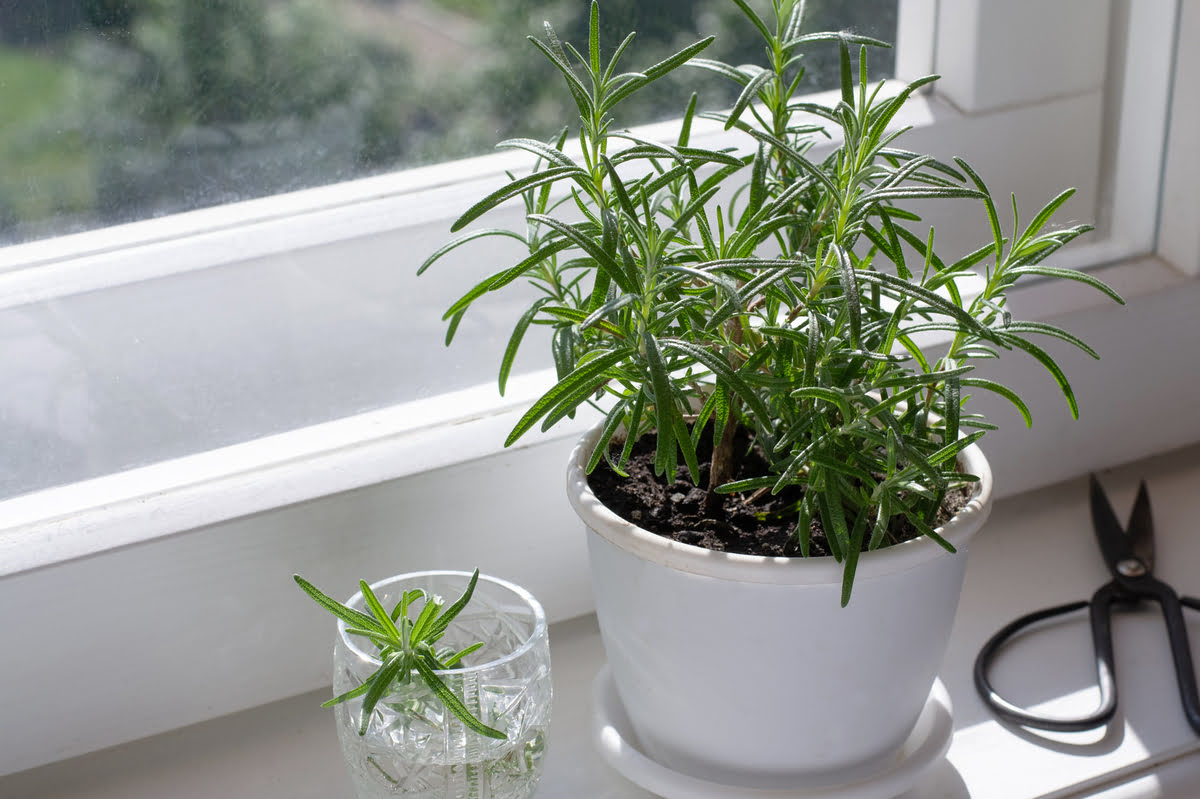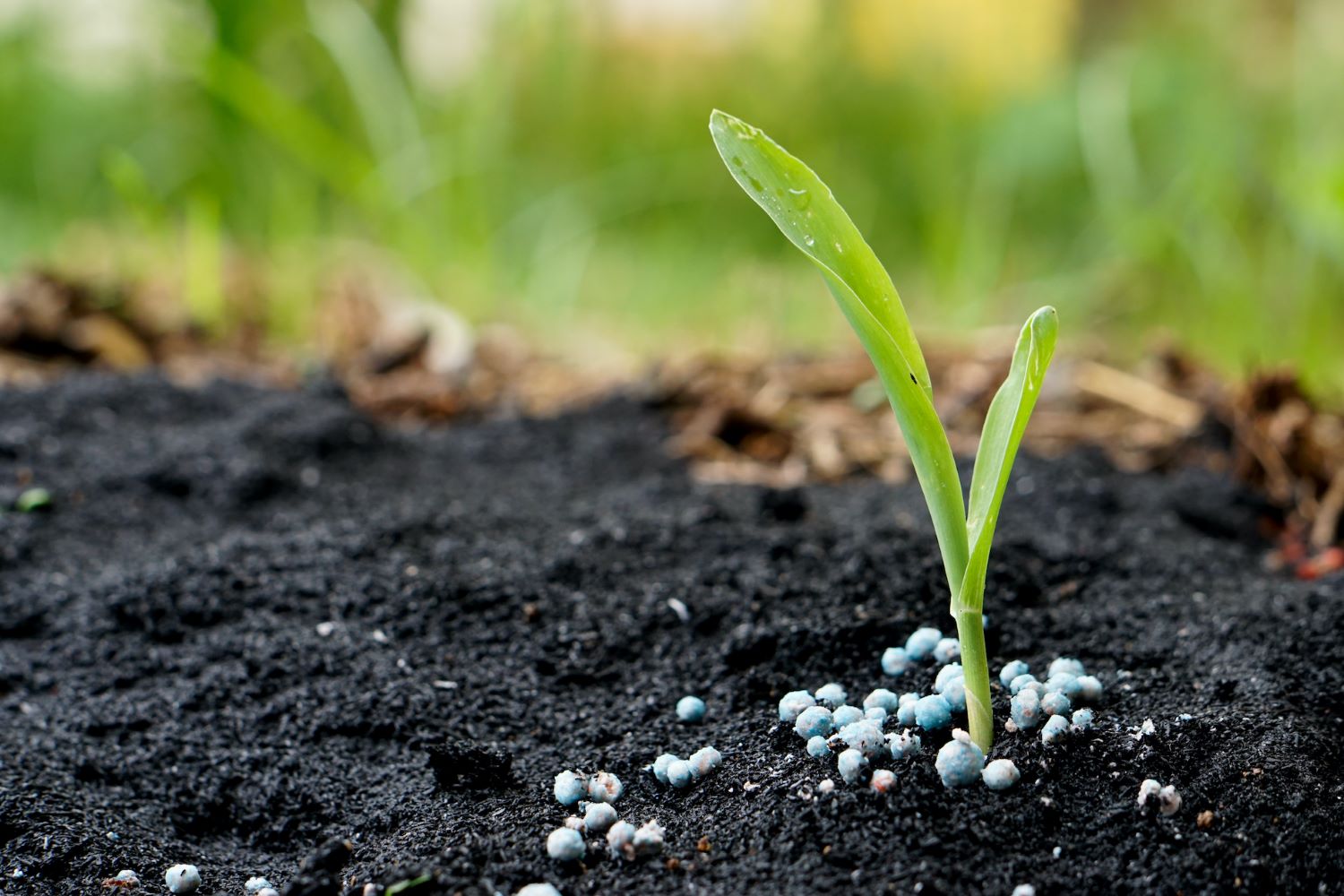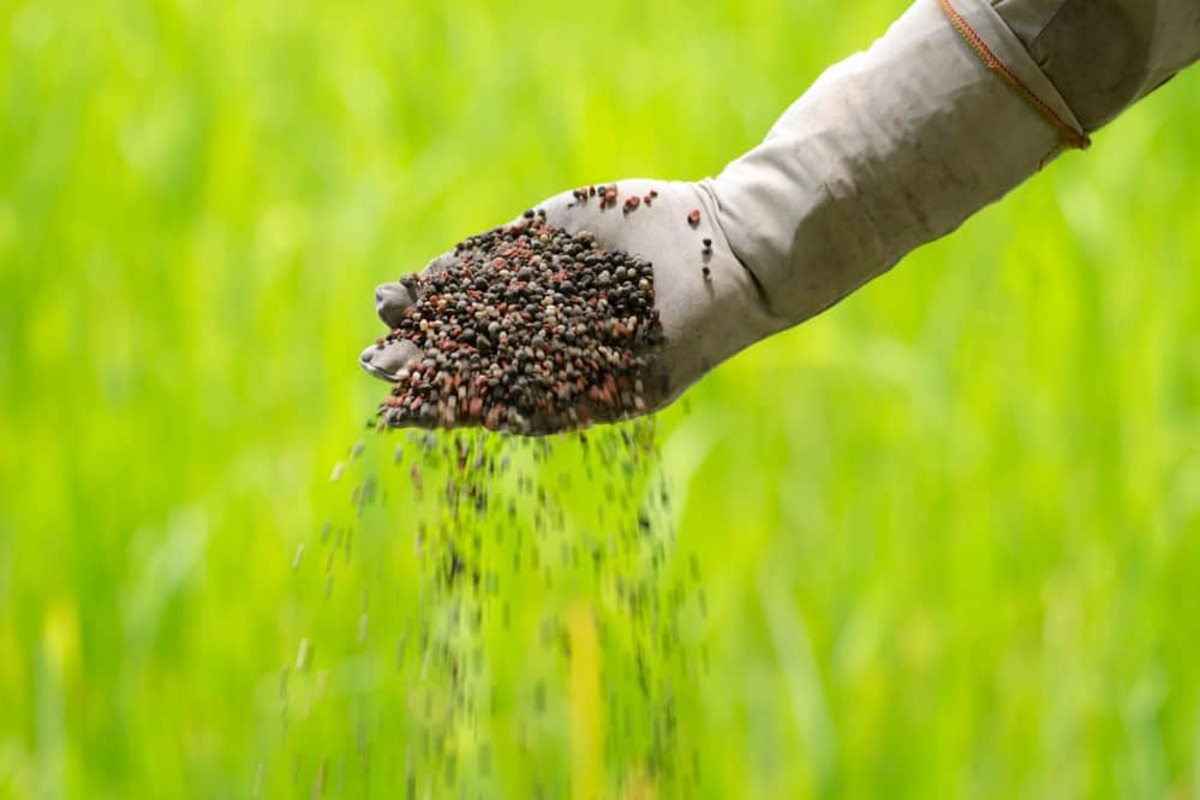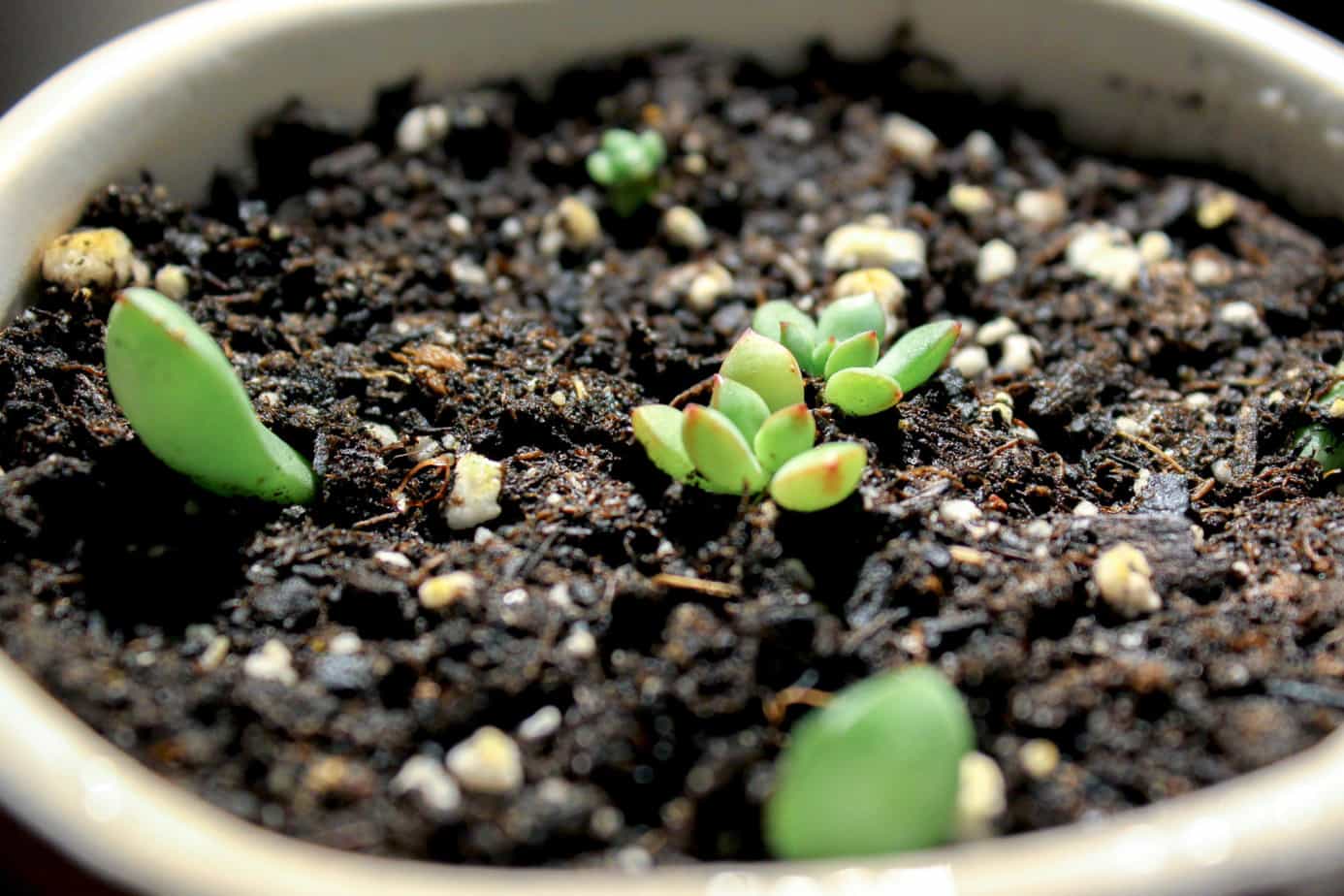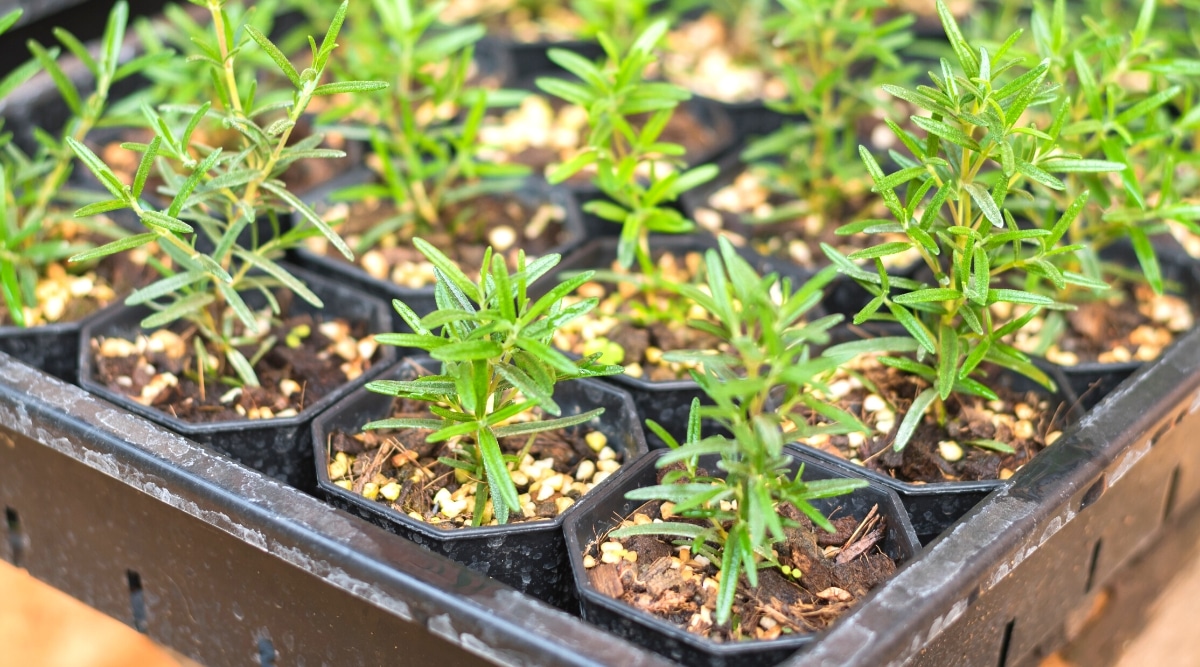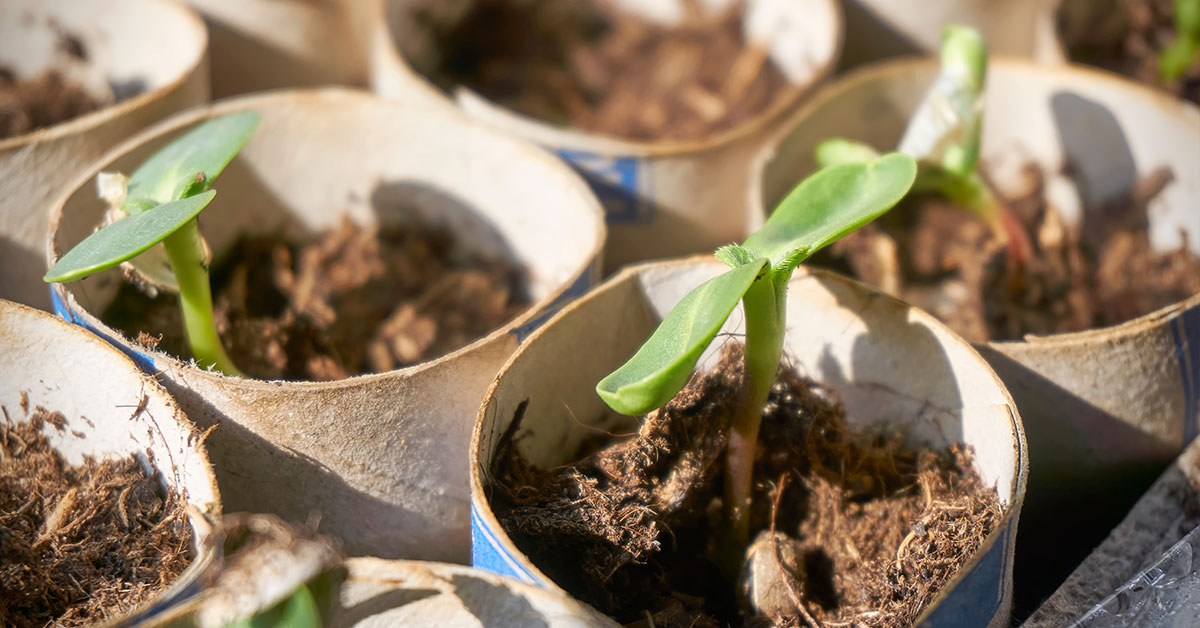Home>Gardening News and Trends>How Long Does It Take To Get A Botany Degree
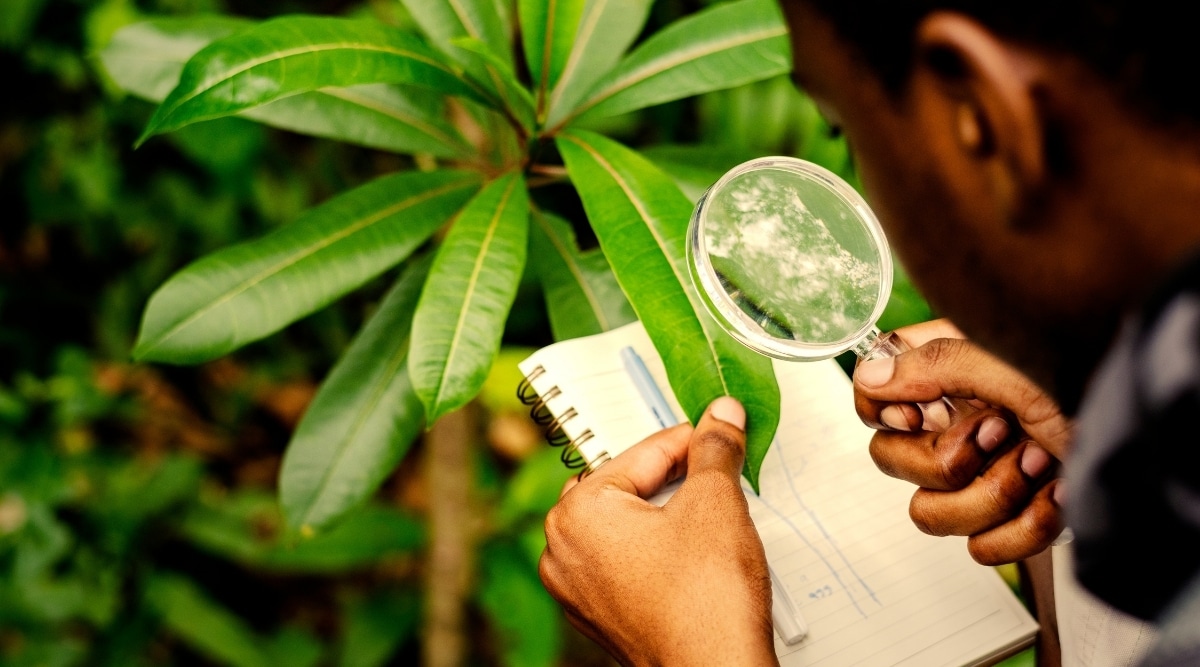

Gardening News and Trends
How Long Does It Take To Get A Botany Degree
Modified: January 22, 2024
Get the latest news on how long it takes to earn a botany degree. Discover the timeframe and requirements for pursuing a career in botany.
(Many of the links in this article redirect to a specific reviewed product. Your purchase of these products through affiliate links helps to generate commission for Chicagolandgardening.com, at no extra cost. Learn more)
Table of Contents
- Introduction
- What is Botany?
- What Does a Botanist Do?
- Types of Botany Degrees
- Pre-Requisites for a Botany Degree
- How Long Does It Take to Earn a Botany Degree?
- Factors Affecting the Duration of a Botany Degree
- Coursework and Curriculum
- Internships and Field Work
- Job Opportunities for Botany Graduates
- Conclusion
Introduction
Botany is a fascinating field of study that delves into the science of plants. It offers a wide range of career opportunities for those passionate about understanding and working with the diverse plant kingdom. Whether it’s studying plant genetics, exploring plant ecosystems, or conducting research on plant diseases, botany provides a platform for individuals to contribute to our understanding of the natural world.
As the world becomes more environmentally conscious, the demand for botanists continues to grow. From agricultural innovations to conservation efforts, botanists play a crucial role in finding sustainable solutions to global challenges. If you’re considering a career in botany, you may be wondering about the time it takes to earn a botany degree.
In this article, we will explore the various aspects of earning a botany degree, including the types of degrees available, the prerequisites, and the factors that can affect the duration of the program. We’ll also discuss the coursework, internships, and job opportunities that await botany graduates.
So, if you’re passionate about plants and curious about the world of botany, let’s dive in and discover the path to earning a botany degree.
What is Botany?
Botany is the scientific study of plants, including their structure, growth, reproduction, physiology, and classification. It is a branch of biology that focuses specifically on plant life, ranging from microscopic algae to towering trees. By studying botany, scientists gain a deeper understanding of plant biology and its relationship to the environment.
One of the key goals of botany is to elucidate how plants function and contribute to the ecosystem. Botanists examine plant anatomy, physiology, and biochemistry to unravel the intricate mechanisms behind plant growth, photosynthesis, and reproduction. They also investigate the interactions between plants and other organisms, including animals, fungi, and bacteria.
Botany encompasses various sub-disciplines, including:
- Taxonomy: This field focuses on the classification and naming of plants. Taxonomists study the morphological and genetic characteristics of plants to categorize and organize them into different groups.
- Plant Physiology: Plant physiologists explore how plants function at the cellular and molecular levels. They investigate processes such as photosynthesis, respiration, and hormone signaling.
- Plant Ecology: Plant ecologists examine the interactions between plants and their environment. They study how plants adapt to different ecosystems, their role in nutrient cycling, and their response to environmental factors such as climate change.
- Plant Genetics: Plant geneticists investigate the structure and function of plant genes. They explore plant inheritance, genetic variation, and the genetic basis of traits such as disease resistance and productivity.
- Economic Botany: This field focuses on the practical applications of plants, including their use in medicine, agriculture, and industry. Economic botanists study medicinal plants, crop production techniques, and the sustainable utilization of plant resources.
Botany has been instrumental in improving our understanding of plants and their vital role in the ecosystem. It has contributed to advancements in agriculture, forestry, plant breeding, and conservation efforts. Additionally, botany plays a crucial role in addressing pressing global challenges, such as food security, climate change, and the preservation of biodiversity.
Now that we have a basic understanding of what botany entails, let’s explore the career options available for those pursuing a botany degree.
What Does a Botanist Do?
A botanist is a scientist who specializes in the study of plants. They apply their knowledge and skills in various areas, including research, conservation, education, and industry. Botanists play an important role in advancing our understanding of plants and their impact on the environment and society.
Here are some of the key tasks and responsibilities of a botanist:
- Research: Botanists conduct research to expand our knowledge of plants and their biology. They investigate a wide range of topics, such as plant physiology, genetics, ecology, and evolution. Through their research, botanists contribute to the development of new crop varieties, the discovery of medicinal plants, and the preservation of endangered plant species.
- Plant Identification and Classification: Botanists have expertise in identifying and classifying plants. They use various tools and techniques, such as field observations, microscopy, and DNA analysis, to determine the species of plants. This information is vital for understanding plant diversity, studying ecosystems, and conserving plant species.
- Conservation: Botanists play a crucial role in protecting and conserving plant species and their habitats. They conduct surveys to assess plant populations, identify threatened species, and develop conservation strategies. Botanists may work with government agencies, nonprofit organizations, or research institutions to implement conservation initiatives and raise awareness about plant conservation issues.
- Education: Many botanists are also involved in teaching and education. They may work as professors, educators, or science communicators, sharing their knowledge and passion for plants with students and the general public. Botanists develop curriculum, deliver lectures and workshops, and contribute to educational resources related to botany.
- Industry and Agriculture: Botanists contribute to agricultural advancements by developing improved crop varieties, studying plant diseases, and optimizing cultivation practices. They may work in agribusinesses, seed companies, or government agencies to enhance crop productivity, ensure food security, and promote sustainable agricultural practices.
- Environmental Consulting: Botanists may provide expertise in ecological assessments and environmental impact studies. They evaluate the effects of human activities on plant communities and devise strategies to minimize negative impacts. Botanists may also contribute to habitat restoration projects and advise on sustainable land management practices.
Overall, the work of a botanist is diverse and highly valuable in addressing global challenges such as climate change, habitat destruction, and food security. Through their expertise and passion for plants, botanists contribute to the conservation and sustainable use of plant resources, as well as our understanding of the natural world.
Now that we have explored what botanists do, let’s move on to discuss the different types of botany degrees available.
Types of Botany Degrees
The field of botany offers a range of educational paths, providing students with the opportunity to pursue their interests in plant science. Here are the main types of botany degrees available:
- Associate Degree in Botany: An associate degree in botany is a two-year program offered by community colleges or vocational schools. This degree provides a foundational understanding of plant biology, ecology, and taxonomy. It is a good option for individuals seeking entry-level positions in the field or those planning to transfer to a bachelor’s degree program.
- Bachelor’s Degree in Botany: A bachelor’s degree in botany typically takes four years to complete and offers a more comprehensive understanding of plant science. Students study core subjects such as plant physiology, genetics, ecology, and taxonomy, along with other relevant coursework in biology, chemistry, and mathematics. A bachelor’s degree in botany opens up various career opportunities in research, conservation, education, and industry.
- Master’s Degree in Botany: A master’s degree in botany is an advanced program that allows students to specialize in a specific area of botany. It typically takes two to three years to complete and involves coursework, research, and the completion of a thesis or project. A master’s degree in botany is suitable for individuals interested in pursuing research positions, teaching at the college level, or working in specialized fields such as plant genetics or plant ecology.
- Ph.D. in Botany: A Ph.D. in botany is the highest level of education in the field. It is a research-focused degree that usually takes around four to six years to complete. Ph.D. students conduct original research, contribute to the advancement of knowledge in their field, and typically complete a dissertation. A Ph.D. in botany is ideal for those aspiring to become professors, research scientists, or leaders in specialized fields within botany.
In addition to these traditional degree options, some universities may offer interdisciplinary programs or specialized degrees in specific areas of botany, such as plant genetics, plant ecology, or plant biotechnology. These programs provide students with an in-depth understanding of their chosen subfield and prepare them for careers in specialized industries or research.
It’s important to research and consider your career goals and interests when choosing the type of botany degree to pursue. Keep in mind that specific job requirements may vary depending on the employer and the nature of the position.
Now that we have discussed the different types of botany degrees available, let’s explore the prerequisites for earning a botany degree.
Pre-Requisites for a Botany Degree
Before embarking on a journey to earn a botany degree, it is important to understand the prerequisites and requirements typically needed for admission into a program. While specific requirements can vary among institutions, here are some common pre-requisites for a botany degree:
- High School Diploma or Equivalent: To pursue a botany degree, you must have a high school diploma or equivalent qualification, such as a General Education Development (GED) certificate. Admissions committees typically require proof of completion of a secondary education program.
- Coursework: Most universities require applicants to have completed certain high school coursework in preparation for a botany degree. This may include classes in biology, chemistry, physics, mathematics, and English. These foundational courses provide a solid background for the more advanced concepts taught in a botany degree program.
- Standardized Tests: Many universities require applicants to submit scores from standardized tests, such as the SAT or ACT. These tests assess your academic readiness and are used by admissions committees to evaluate your potential for success in a botany degree program. Additionally, some institutions may require specific subject tests, such as the SAT Subject Test in Biology.
- Letters of Recommendation: It is common for universities to request letters of recommendation as part of the application process. These letters should come from individuals who can speak to your academic abilities, work ethic, and potential for success in a botany program. Professors, teachers, or mentors are often preferred choices for providing letters of recommendation.
- Personal Statement or Essay: Many universities require applicants to submit a personal statement or essay as part of their application. This is an opportunity for you to showcase your motivation, passion for botany, and relevant experiences. It allows admissions committees to gain insight into your goals, interests, and potential contributions as a botany student.
- Extracurricular Activities: While not always a strict requirement, involvement in extracurricular activities related to science or botany can strengthen your application. This may include participation in science clubs, volunteering at botanical gardens, conducting independent research, or attending science fairs.
It is important to note that the pre-requisites and specific requirements for a botany degree can vary among institutions and degree levels. Researching and reviewing the admission criteria for the specific botany programs you are interested in is essential.
Now that we have explored the pre-requisites for a botany degree, let’s delve into the time it takes to earn a botany degree.
How Long Does It Take to Earn a Botany Degree?
The time it takes to earn a botany degree can vary depending on the level of education pursued and the specific program requirements. Here is a breakdown of the typical durations for each level of botany degree:
- Associate Degree: An associate degree in botany usually takes around two years of full-time study to complete. This program provides a foundational understanding of botany and prepares students for entry-level positions or further education.
- Bachelor’s Degree: A bachelor’s degree in botany typically takes four years of full-time study to complete. Students engage in a comprehensive curriculum that includes core botany courses, as well as general education requirements in other disciplines.
- Master’s Degree: For those pursuing a master’s degree in botany, the duration can range from two to three years. This includes coursework, research, and the completion of a master’s thesis or project. Some programs offer accelerated options or part-time study for individuals seeking flexibility.
- Ph.D. Degree: Earning a Ph.D. in botany usually takes four to six years of full-time study, depending on the research project and individual progress. Ph.D. students engage in advanced coursework, conduct original research, and contribute to the scientific body of knowledge through a dissertation. The length of time can vary depending on the complexity and scope of the research.
It is important to note that the duration of a botany degree may also be influenced by factors such as part-time study, transfer credits, and academic performance. Some students may choose to take a longer period to complete their studies by spreading coursework over semesters or combining work and study commitments.
Additionally, certain programs may offer accelerated or combined degree options, allowing students to complete their bachelor’s and master’s degrees in a shorter timeframe. These programs typically require an intensive course load and research-oriented coursework.
Overall, the duration of a botany degree varies depending on the level of education and the individual’s academic journey. It is essential to research and understand the specific time commitments associated with the desired degree program to effectively plan your educational pathway.
Next, let’s explore some of the factors that can affect the duration of a botany degree.
Factors Affecting the Duration of a Botany Degree
While the standard durations for botany degrees have been outlined, it is important to consider that several factors can influence the time it takes to complete a botany degree. Here are some of the key factors that can affect the duration:
- Course Load and Scheduling: The number of courses taken each semester and the availability of classes can impact the time to complete a degree. Students who take a heavier course load or enroll in summer or online courses may be able to finish their degree more quickly.
- Academic Progress and Performance: Individual academic progress can also affect the duration of a botany degree. Students who pass all their courses and maintain good academic standing can stay on track to complete their degree within the expected time frame. However, any academic challenges or changes in major may result in additional time needed to meet the degree requirements.
- Research or Thesis Requirements: For graduate programs, the completion of a research project or thesis is often necessary. The time required to conduct research, collect data, and write a thesis can vary depending on the complexity of the project and individual circumstances. Some students may need more time to complete their research, leading to a longer duration for their degree.
- Internships, Co-op, or Field Work: Many botany programs encourage students to gain practical experience through internships, cooperative education programs, or fieldwork. While these experiences can enhance a student’s skills and job prospects, they may also extend the duration of the degree program if they require time away from regular coursework.
- Part-Time or Flexible Study: Some students choose to pursue their botany degree on a part-time basis, allowing them to balance work, family, or other commitments. Part-time study can extend the duration of a degree but offers greater flexibility for those who need to manage multiple responsibilities.
- Transfer Credits: Students who transfer from another institution or have prior college credits may receive credit for their previous coursework. The acceptance and applicability of these transfer credits can reduce the time needed to complete a botany degree.
It is important for students to plan their academic journey and consider these factors when estimating the time it will take to complete a botany degree. Communicating with academic advisors, understanding program requirements, and effectively managing time and resources can help students stay on track and make informed decisions.
Now that we have explored the factors that can influence the duration of a botany degree, let’s delve into the coursework and curriculum typically involved in a botany program.
Coursework and Curriculum
The coursework and curriculum for a botany degree provide students with a strong foundation in plant sciences while also incorporating various other disciplines. The specific courses can vary among institutions and degree levels, but here are some core areas typically covered in a botany program:
- Plant Biology: Courses in plant biology delve into the anatomy, physiology, and biochemistry of plants. Students learn about plant cells, tissues, organs, and the processes involved in plant growth, development, and reproduction.
- Plant Taxonomy and Systematics: These courses focus on the classification and identification of plants. Students learn about plant families, species identification, and the use of taxonomic keys and techniques for plant classification.
- Plant Ecology: Plant ecology courses explore the interactions between plants and their environment. Students study topics such as plant adaptations, population dynamics, community ecology, and the relationships between plants and other organisms within ecosystems.
- Plant Genetics: Courses in plant genetics cover the principles of heredity and the molecular mechanisms of plant inheritance. Students learn about genetic variation, gene expression, plant breeding techniques, and the use of genetics in crop improvement.
- Plant Physiology: These courses delve into the physiological processes that occur within plants. Students study topics such as photosynthesis, respiration, water and nutrient uptake, and the response of plants to environmental stimuli.
- Botanical Fieldwork and Data Analysis: Many botany programs include opportunities for fieldwork and data collection. Students learn field techniques for plant identification, data collection, and ecological surveys. They also gain skills in analyzing and interpreting botanical data using statistical methods and computer software.
- Conservation and Plant Diversity: Courses on plant conservation and diversity explore the importance of conserving plant species and the strategies employed to safeguard plant biodiversity. Students learn about the identification and conservation of endangered plant species and their habitats.
- Additional Coursework: Depending on the program and the student’s interests, additional coursework may cover topics such as plant biotechnology, plant pathology, ethnobotany, or plant evolution. Some programs may also offer elective courses to allow students to specialize in particular areas of botany.
Throughout the coursework, students engage in hands-on laboratory experiments, fieldwork, and data analysis to reinforce theoretical concepts. Botany programs often encourage independent research projects or internships, providing students with opportunities to gain practical experience and apply their knowledge in real-world settings.
It is important to review the curriculum of the specific botany program you are interested in to understand the exact courses and requirements involved. Course requirements may differ based on the degree level, program focus, and institution.
Now that we have covered the coursework and curriculum, let’s explore the importance of internships and fieldwork in a botany degree program.
Internships and Field Work
Internships and field work are integral components of a botany degree program, providing students with practical experience and the opportunity to apply their knowledge in real-world settings. These experiences offer valuable hands-on learning and can enhance students’ skills, knowledge, and job prospects in the field of botany.
Here are some key reasons why internships and field work are important in a botany degree program:
- Practical Application: Internships and field work allow students to put their theoretical knowledge into practice. They get to work in actual botanical settings and gain first-hand experience in conducting research, collecting data, and applying their skills to solve real-world problems.
- Networking Opportunities: Internships and field work provide students with the chance to connect with professionals and experts in the field of botany. They can learn from experienced practitioners, establish relationships with mentors, and potentially build a network of contacts for future career opportunities.
- Skill Development: These experiences help students develop essential skills relevant to the field of botany. They can improve their field identification skills, data collection and analysis techniques, and scientific communication abilities. They may also learn practical skills such as using laboratory equipment, conducting experiments, and working with specialized software.
- Exposure to Different Environments: Internships and field work often expose students to diverse environments and ecosystems. They may have the opportunity to work in botanical gardens, national parks, research institutions, or conservation organizations. This exposure allows students to gain a broader understanding of the diversity of plant life and the various challenges and conservation efforts related to different ecosystems.
- Career Exploration: Internships and field work can help students explore different career paths within the field of botany. By working in different settings and roles, students can gain insight into the variety of career opportunities available. This firsthand experience can help them refine their career goals and make informed decisions about their future paths.
- Enhanced Resume/CV: The practical experience gained through internships and field work can greatly enhance a student’s resume or curriculum vitae (CV). Employers often value applicants with real-world experience, and having completed internships or fieldwork demonstrates a student’s commitment and ability to apply their knowledge effectively.
Many botany programs have established connections with local botanical gardens, research institutions, government agencies, and other organizations that offer internships and fieldwork opportunities. It is important for students to proactively seek out these opportunities, communicate with program advisors, and inquire about potential internship or fieldwork positions.
Internships and field work can vary in length and intensity, ranging from short-term projects during summer breaks to semester-long placements. It is beneficial for students to engage in multiple internships or field work experiences throughout their botany degree program to gain a well-rounded understanding of the field and enhance their skill set.
After understanding the significance of internships and field work, let’s explore the job opportunities that await botany graduates.
Job Opportunities for Botany Graduates
Botany graduates have a diverse range of career opportunities available to them, spanning various sectors and industries. The knowledge and skills gained through a botany degree can be applied to a wide array of roles, including research, conservation, education, industry, and more. Here are some examples of potential job opportunities for botany graduates:
- Botanist/Plant Scientist: Graduates can work as botanists or plant scientists, conducting research on plant growth, genetics, physiology, or ecology. They may work in academic institutions, government agencies, research organizations, or private companies, contributing to advancements in plant science and finding new ways to enhance crop production, conserve species, or improve plant-based products.
- Ecologist: Ecologists focus on studying the interactions between organisms and their environment. Botany graduates can work as ecologists, specializing in plant ecology and analyzing the impact of human activities, climate change, and urbanization on plant communities and ecosystems.
- Conservation Scientist: Botany graduates interested in conservation can play a crucial role in preserving plant biodiversity and protecting endangered species. They can work in governmental or nonprofit organizations, developing and implementing strategies for habitat restoration, species conservation, and sustainable land management.
- Environmental Consultant: Environmental consulting firms often hire botany graduates to assess and mitigate the ecological impact of development projects. They may conduct environmental impact assessments, monitor ecosystems, and provide recommendations for sustainable practices that protect plant diversity and natural habitats.
- Science Educator: Botany graduates can pursue careers in education, teaching botany in schools, colleges, or universities. They can also develop educational materials and curricula for botanical education programs, botanical gardens, museums, or nature centers.
- Botanical Garden Curator: Some botany graduates find fulfilling careers as curators or administrators in botanical gardens. They oversee the management of plant collections, coordinate education and outreach programs, and contribute to plant conservation efforts.
- Plant Geneticist: Botany graduates with a strong background in genetics can work as plant geneticists, conducting research to improve crop varieties, increase yield, enhance disease resistance, and develop sustainable agricultural practices.
- Pharmaceutical Researcher: Plant-based pharmaceuticals play a crucial role in medicine. Botany graduates can work in research and development of plant-based drugs, studying the chemical compounds and potential medicinal properties of various plant species.
- Seed Technologist: Seed technologists work in the seed industry, ensuring the quality, viability, and germination of seeds. They conduct research, develop seed treatments, and maintain seed banks to preserve genetic diversity.
These are just a few examples, and the range of job opportunities for botany graduates continues to expand as the importance of sustainability, environmental stewardship, and plant-based research grows globally.
It is worth noting that advanced degrees, such as a master’s or Ph.D., may enhance job prospects and qualify individuals for higher-level positions, research positions, or teaching roles in academia.
Now that we have explored various career opportunities, let’s wrap up our discussion on botany degrees.
Conclusion
Botany offers a fascinating and fulfilling career path for those passionate about plants and the natural world. Earning a botany degree provides individuals with a strong foundation in plant sciences, equipping them with the knowledge and skills needed to pursue diverse career opportunities.
In this article, we have explored the different aspects of earning a botany degree. We started by understanding what botany is and the role of botanists in studying and exploring the plant kingdom. We then discussed the various types of botany degrees, including associate, bachelor’s, master’s, and Ph.D. degrees. Each level of degree provides different depths of knowledge and opens up unique career possibilities.
Furthermore, we explored the pre-requisites for a botany degree, including having a high school diploma or equivalent and fulfilling specific coursework and standardized testing requirements. We also highlighted the importance of internships and fieldwork in gaining practical experience and building valuable skills.
Additionally, we discussed the duration of a botany degree, which can vary depending on the level of education, program requirements, and individual circumstances. Factors such as course load, transfer credits, and research or thesis requirements can influence the overall duration.
We also outlined the coursework and curriculum typically covered in a botany degree program, including subjects like plant biology, ecology, genetics, and taxonomy. These courses provide a comprehensive understanding of plant science and lay the foundation for further specialization.
Lastly, we explored the multitude of job opportunities awaiting botany graduates. From working as botanists and ecologists to pursuing careers in conservation, education, industry, and more, botany graduates can contribute to advancements in scientific research, environmental conservation, and sustainable practices.
By pursuing a botany degree, individuals can embark on an exciting journey that combines their passion for plants with meaningful and impactful work. They have the opportunity to contribute to the understanding and conservation of plant life and make a positive difference in the world.
So, if you’re intrigued by the wonders of the plant world and seeking a fulfilling career that combines scientific inquiry and environmental stewardship, consider exploring the path to earning a botany degree.
